Google Claims Android Auto Will Become Safer and Smarter After Update
Google has announced plans to update Android Auto to reduce the time drivers are required to look at screens. This includes the obligatory mention of leveraging artificial intelligence. But the phrase has become a blanket term for any advanced computing integrated into other systems, meaning we have to dig a little deeper to understand what AI brings to the table. While Google hasn’t gotten overly specific, it has said it wants to place an emphasis on improving safety.
Android Auto Adds Zoom to UX, Society’s End is Near
In what is surely the final blow to any semblance of work/life balance, Google has added WebEx and Zoom meeting functionality to its Android Auto suite of services.
The Self-Driving Industry Looks Unwell, Waymo Layoffs Begin
Alphabet subsidiary Waymo has reportedly leaned into layoffs and everyone is wondering whether this is an offshoot of the 12,000 job cuts being made at Google or indicative that self-driving tech has run itself into a brick wall. While there’s certainly a wealth of evidence that autonomous vehicles have progressed more slowly than the industry would have had us believe a decade earlier, Waymo has arguably made some of the biggest strides in the industry.
GM and Ford Partner With Google to Promote 'Virtual Power Plants'
General Motors and Ford Motor Company have joined forces with Google – and a collection of businesses focused on solar power – to advance “virtual power plants” (VPPs). If you’re unfamiliar with the concept, it basically entails leveraging distributed energy networks to create a more flexible and efficient power grid. Though the entire concept hinges on networking countless devices together via collective energy rationing whenever demand spikes.
Renault Launches Built-In Waze App for France, Interested?
Waze has become an incredibly popular navigation tool for drivers, growing from just a few thousand users in 2008 – back when it was still called FreeMap Israel and Linqmap – to a whopping 140 million monthly active users spread across 185 countries by 2022. This surging popularity has been attributed primarily to Waze offering features that allowed drivers to share travel details that would be of use to other drivers, pinning things like the location of speed traps, wrecks, and construction, or simply helping the application estimate route times. But it’s only ever been a mobile app that can be mirrored to your dashboard – until now.
Noting that Waze is the most commonly used driving application in France, Renault has partnered with the company to deliver a dedicated version of the app for its vehicles.
Not Everyone in Arizona Is a Fan of Waymo's Self-Driving Vans
Waymo, the autonomous program backed by Google-parent Alphabet, seems to have upset some residents of Phoenix, Arizona, who have elected to whip eggs at the company’s test vehicles. Selected due to its lax regulatory standards, the state has become home base for Waymo to pioneer its self-driving vans since 2016. However, newly released police reports paint a picture where the locals are far less enthused with the vehicles’ progress than Waymo’s marketing materials would suggest.
A subset of Phoenix citizens has been demanding the firm improve transparency and offer better explanations for some of the higher-profile crashes since 2018. Despite Waymo assuring the public that mishaps are rare, local reports showed some erratic behavior among the test mules operating in 2020. While a few of these incidents made the news, local police reports from Chandler and Tempe (metropolitan Phoenix) indicate there was a slew of incidents we did not know about — many of which involved encounters with frustrated, human motorists.
Going Android: Ford and Google Enter Six-year Data Partnership
On Monday, Ford and Google jointly announced a strategic, six-year partnership to accelerate the automaker’s connected vehicle and data service programs. Framed as part of Ford’s natural evolution into an information focused mobility firm, the release was loaded with corporate buzz phrases that we had to clean up. But the gist is that Ford would like to leverage Google Cloud for its products, meaning all future Ford models will be running Android operating systems starting in 2023.
This clears a pathway for improved integration from Google Assistant, Maps, Play, or any third-party applications catering to the incredibly popular OS. Unfortunately, it also highlights how gaga automakers are getting about data for the umpteenth time.
Nikola Criticized for Censoring YouTube Videos That Made It Look Bad
We’re getting the feeling that Nikola Corp is going to be the biggest dumpster fire since our multi-year love/hate relationship with Faraday Future. Content creators on YouTube are now criticizing the startup for abusing copyright claims to strike down videos that were coming down hard on its recent actions after at least two financial commentators operating channels on the Google-owned video platform have had clips removed this week.
While copyright abuses have become uncomfortably common as a way to censor opponents on YouTube over the last few years, they’ve become increasingly predatory as Google rarely seems interested in siding with the little guy. We suppose this was the inevitability of the proliferation of a corporate-controlled internet but knowing that makes the practice seem no less grimy, especially with terms and services being so woefully vague that content can be removed for practically any reason, to begin with. Nikola is hardly the first company to engage in this grotesque behavior and will not be the last.
FCA Strengthens Relationship With Waymo; ProMaster On Deck
Fiat Chrysler Automobiles and Waymo jointly announced plans to expand their autonomous driving partnership on Wednesday, with a new focus on delivery vehicles. The Google affiliate already uses Chrysler’s Pacifica as the primary testing platform for its autonomous taxi services, and it appears it isn’t eager to rock the boat, now that it needs something more utilitarian as it moves toward SAE Level 4.
While not completely self-driving, such vehicles would be capable of performing all necessary tasks under certain conditions. They may be designed for a specific purpose and lack traditional vehicle controls. Waymo seems to think they’d be ideal units for transporting goods and has asked FCA to hand over Ram ProMaster vans for conversion into test mules. It also asked the automaker to become its sole partner on the project — which is assumed to carry over once the company merges with Groupe PSA to become the Stellantis corporation.
Former Uber Self-driving Head Declares Bankruptcy
The former leader of Uber Technologies’ self-driving unit, Anthony Levandowski, filed for Chapter 11 bankruptcy on Wednesday, and it looks to have something to do with the $179 million he’s legally obliged to pay Google. A San Francisco County court decreed the same day that Anthony needs to pay out in order to settle his contract dispute.
In December, it was ruled that Levandowski and Lior Ron violated their agreement with Google when they left the company to start Otto — a rival autonomous vehicle company focused primarily on commercial trucking. Uber purchased Otto in 2017 but Google’s self-driving arm (which evolved into Waymo) claimed Levandowski violated intellectual property laws by stealing trade secrets it owned for Uber. While Ron decided to pay $9.7 million to settle with the tech firm, Anthony held out. He also faces a federal indictment over the alleged intellectual property violation.
Listen Up: Amazon Putting Alexa Into More Automobiles
Amazon is striving to put Alexa, the home assistant/listening device, into more automobiles in the coming years. As a result, the company is working feverishly to enhance her vehicular-related capabilities — including wriggling her way into the embedded software systems of new cars.
On the surface, it sounds great. Networking your car with your smart home device opens up a bevy of new conveniences and Alexa should also help your car get better at understanding everyday voice commands. In the future, you’ll be able to order groceries, check the stock market, call the office, and adjust the thermostat of your house and car without ever having to take your hands off the steering wheel. But this also opens up a bevy of concerns, now that we know Amazon’s employees listen to and record pretty much everything you say to the device — sometimes doing the same for background conversations that were never intended for Alexa’s ears.
Waymo Refocuses on Semis, Heads Back to Phoenix for Testing
Alphabet’s Waymo probably operates the most successful autonomous fleet in North America right now. While we can debate its technical prowess versus its rivals forever, it’s still one of the only companies offering a commercial taxi service using autonomous vehicles in North America. It also has an enviable safety record.
The company has also worked on adapting the technology for Class 8 trucks, testing such units previously in California, Atlanta, and Arizona. Recently, the company tweeted that self-driving semis would soon return for more testing in Phoenix — where it runs its Pacifica-based early rider program — as the company places a renewed emphasis on their development.
Google Maps Finally Tracking Speed Limits, Speed Traps
The next time you use Google Maps to plan a road trip, you might notice some changes. Maps is now providing live updates on posted speed limits across the United States. Previously, this feature was only available in San Francisco. However, other parts of the country started seeing the feature crop up late last week as Google updated local servers.
This author saw changes on the app as early as January 18th. Travelling a bit too far from major metropolitan hubs or major highways has proven coverage has not yet gone nationwide. Google says it hopes to soon remedy that by implementing the service across the United States, United Kingdom, and select parts of mainland Europe. Of course, if you don’t want to wait, Waze (also owned by Google) has had this feature available for years, and remains the more robust navigation platform.
Waymo Promises New Auto Jobs in Michigan
Alphabet’s self-driving arm, Waymo, announced plans for a Michigan expansion on Tuesday. The company is currently seeking a location in the southeast section of the state and intends to hire up to 400 employees over the next five years.
According to a corporate blog post, the new new hires will be tasked with installing autonomous driving systems on vehicles built by Fiat Chrysler Automobiles and Jaguar Land Rover ahead of those vehicles entering the firm’s growing fleet.
“We’ll be looking for engineers, operations experts, and fleet coordinators to join our team and help assemble and deploy our self-driving cars,” the blog explains. “This will be the world’s first factory [100-percent] dedicated to the mass production of [Level 4] autonomous vehicles.”
Waymo's First Commercial Self-driving Service Launches in Phoenix
We’ve arrived. It’s officially #TheFuture.
After years of talk within the auto industry, Waymo says it will become the first company to offer a commercial taxi service using autonomous vehicles when the program launches in Arizona today. Called Waymo One, the Google subsidiary plans to offer the first batch of rides to the 400 individuals who participated in the firm’s pilot program. Afterwards, the service will be expanded to more riders in a broader area.
As with the company’s early rider program, Waymo wants to keep the launch small to assess demand while continuing the company’s testing in an environment it feels comfortable with. Based on the growing assumption that autonomous vehicles can’t handle inclement weather, Arizona seems like the perfect place to keep working out the bugs.
Similarly, public complaints have indicated Waymo’s fleet of Chrysler Pacificas may not yet be perfected.



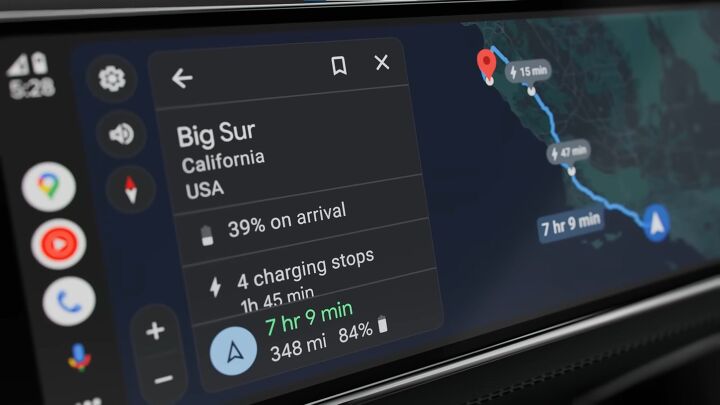

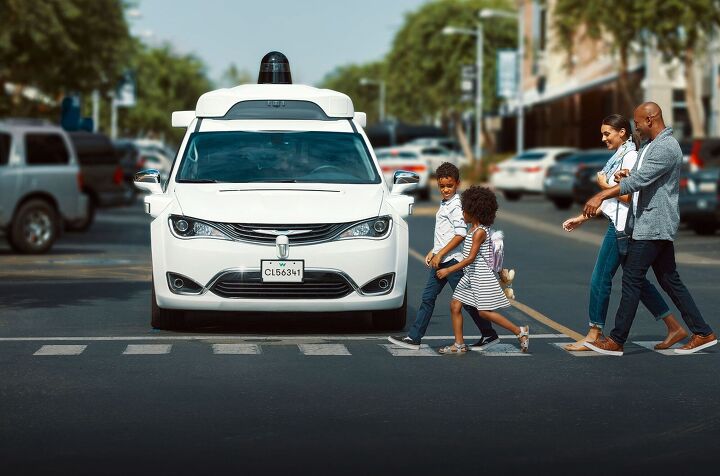


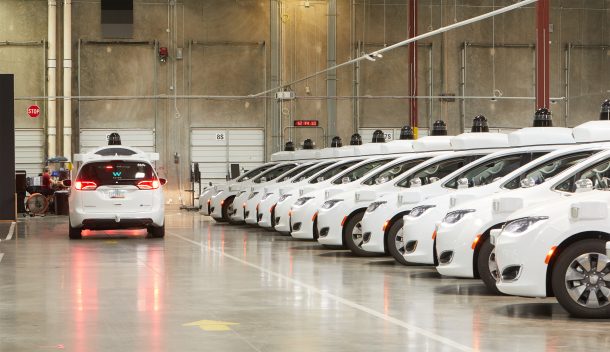



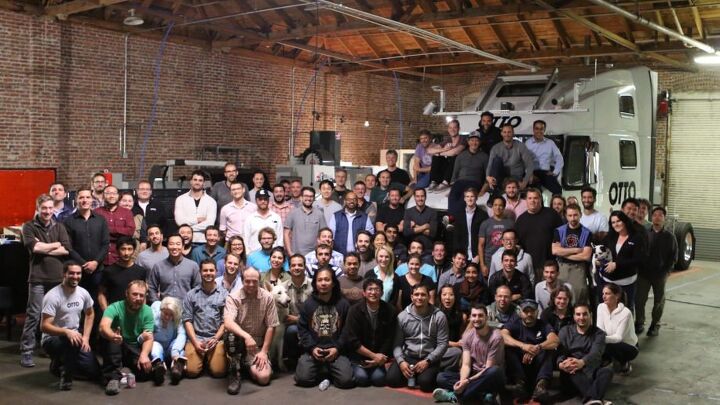
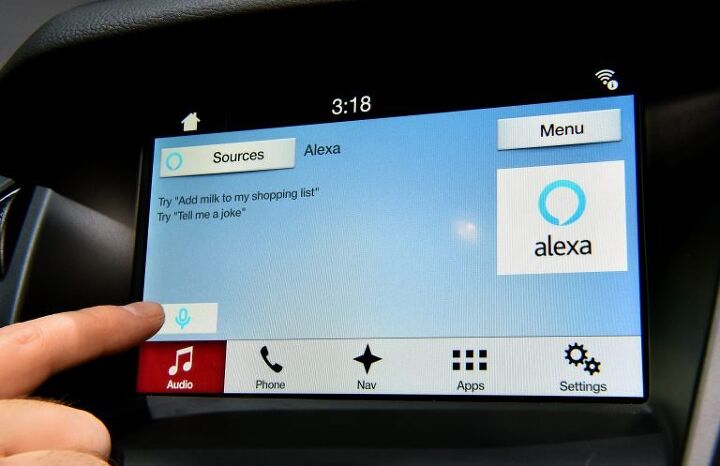


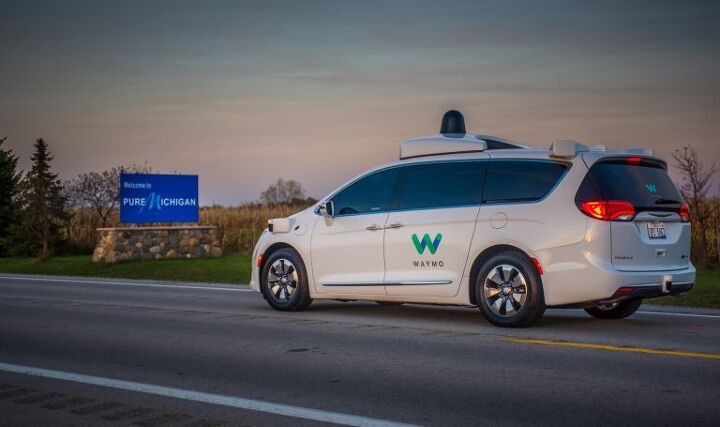













Recent Comments